|
Books Should Be Free Loyal Books Free Public Domain Audiobooks & eBook Downloads |
|
|
Books Should Be Free Loyal Books Free Public Domain Audiobooks & eBook Downloads |
|
Books on Languages |
|---|
|
Book type:
Sort by:
View by:
|
By: Anton Chekhov (1860-1904) | |
|---|---|
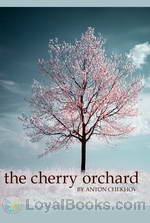 The Cherry Orchard
The Cherry Orchard
The Cherry Orchard is Russian playwright Anton Chekhov's last play. It premiered at the Moscow Art Theatre 17 January 1904 in a production directed by Constantin Stanislavski. Chekhov intended this play as a comedy and it does contain some elements of farce; however, Stanislavski insisted on directing the play as a tragedy. Since this initial production, directors have had to contend with the dual nature of this play. The play concerns an aristocratic Russian woman and her family as they return to the family's estate (which includes a large and well-known cherry orchard) just before it is auctioned to pay the mortgage... | |
 Uncle Vanya
Uncle Vanya
Uncle Vanya (subtitled “Scenes From Country Life”) is a tragicomedy by Anton Chekhov. It is set on the failing country estate of a retired professor, Serebrakoff, who returns after a long absence with his beautiful young wife, and throws the household into confusion. Rivalry, unrequited love, illicit romance, and attempted suicide are the result, punctuated throughout by Chekhov’s sad, wistful humor. | |
By: Herbert Allen Giles (1845-1935) | |
|---|---|
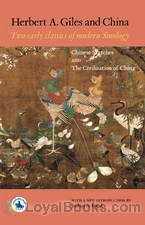 China and the Chinese
China and the Chinese
Herbert Allen Giles (1845-1935) spent several years as a diplomat in China and in 1897 was appointed Cambridge University’s second professor of Chinese. His published works cover Chinese language and literature, history and philosophy. This series of lectures, published as “China and the Chinese”, was given at Columbia University in 1902, to mark the establishment of a Chinese professorship there. The lectures were not intended for the specialist, more to urge a wider and more systematic study of China and its culture, and to encourage new students into the field... | |
By: M.L. Nesbitt | |
|---|---|
 Grammar-Land
Grammar-Land
In this charming 1877 book of grammar instruction for children, we are introduced to the nine parts of speech and learn about the rules that govern them in Grammar-Land."Judge Grammar is far mightier than any Fairy Queen, for he rules over real kings and queens down here in Matter-of-fact-land. Our kings and queens have all to obey Judge Grammar’s laws, or else they would talk what is called bad grammar; and then, even their own subjects would laugh at them, and would say: “Poor things!They are funny fellows, these nine Parts-of-Speech... | |
By: Okakura Kakuzo (1863-1913) | |
|---|---|
 The Book of Tea
The Book of Tea
The Book of Tea was written by Okakura Kakuzo in the early 20th century. It was first published in 1906, and has since been republished many times. – In the book, Kakuzo introduces the term Teaism and how Tea has affected nearly every aspect of Japanese culture, thought, and life. The book is noted to be accessibile to Western audiences because though Kakuzo was born and raised Japanese, he was trained from a young age to speak English; and would speak it all his life, becoming proficient at communicating his thoughts in the Western Mind... | |
By: Epictetus (c.55-135) | |
|---|---|
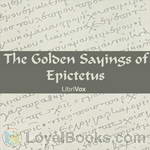 The Golden Sayings of Epictetus
The Golden Sayings of Epictetus
Aphorisms from the Stoic Greek. | |
By: Sholem Aleichem (1859-1916) | |
|---|---|
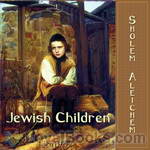 Jewish Children (Yudishe Kinder)
Jewish Children (Yudishe Kinder)
Although written from a child’s perspective, this is not a kids book but a series of funny, poignant, and sometimes disturbing stories about life in a late 19th-century Russian-Jewish village — the world of my grandparents. Sholem Rabinovich (1859-1916) was born in Pereiaslav, Ukraine and later immigrated to New York. His short stories about Tevye and his daughters were freely adapted into the musical FIDDLER ON THE ROOF. Rabinovich’s will contained the following injunction: “Let my name be recalled with laughter or not at all.” His translator, Hannah Berman, was Irish of Lithuanian descent.Some of these stories may be too intense for younger children. | |
By: Sophocles (495-406 BC) | |
|---|---|
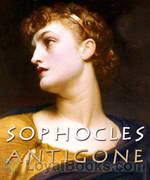 Antigone
Antigone
This is the final installment in Sophocles's Theban Plays, following Oedipus Rex and Oedipus at Colonus. Oedipus's daughter Antigone deliberately breaks the laws of Thebes when she buries her brother's body and is sentenced to death. She clashes with Creon, the King of Thebes, over what constitutes justice and morality: the laws of the state or the laws of the individual. | |
By: Nikolai Vasilievich Gogol | |
|---|---|
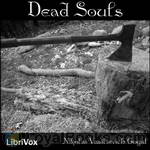 Dead Souls
Dead Souls
Dead Souls by Nikolai Gogol, Russian writer, was first published in 1842, and is one of the most prominent works of 19th-century Russian literature. Gogol himself saw it as an “epic poem in prose”, and within the book as a “novel in verse”. Despite supposedly completing the trilogy’s second part, Gogol destroyed it shortly before his death. Although the novel ends in mid-sentence (like Sterne’s Sentimental Journey), it is usually regarded as complete in the extant form. In Russia before the emancipation of the serfs in 1861, landowners were entitled to own serfs to farm their land... | |
By: Paul Allardyce (1855-1895) | |
|---|---|
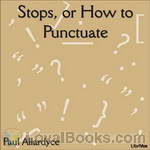 Stops, or How To Punctuate
Stops, or How To Punctuate
Throughout the ages, languages continue to adapt and change. English, being a relatively new language, is a nice example of that. Though the English vocabulary is continually evolving, the system of punctuation has remained constant for the most part. This means that grammar books from 1895 are still applicable today. Therefore, if the following sentence looks correct to you, perhaps listening to Paul Allardyce’s “Stops, or How to Punctuate” would be a good idea. | |
By: Sir Arthur Cotton (1803-1899) | |
|---|---|
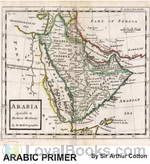 Arabic Primer
Arabic Primer
“Languages”, Sir Arthur Cotton writes, “are usually learnt as if it took a long time to learn the grammar &c., but that to speak with a good pronunciation and expression, and freely, and to catch the words from a speaker by the ear were easily and quickly acquired, but this is exactly contrary to fact.” Cotton’s “Vocal system” differs from the traditional grammatical method of learning languages in that it emphasises the development of correct pronunciation and the gradual acquisition of correct expressions and vocabulary... | |
By: Eva March Tappan (1854-1930) | |
|---|---|
 Makers of Many Things
Makers of Many Things
How are friction matches made? How do rags and trees become paper? Who makes the dishes on our tables? Published in 1916, this children's book explains the origins of everyday items in an entertaining and informative way. There are plenty of illustrations, so please feel free to read along. | |
By: W. M. Flinders Petrie | |
|---|---|
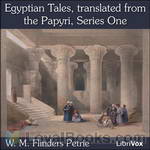 Egyptian Tales, translated from the Papyri, Series One
Egyptian Tales, translated from the Papyri, Series One
Brief, and in some cases incomplete, stories of magic from ancient Egypt. | |
By: Herbert Spencer (1820-1903) | |
|---|---|
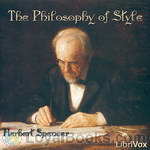 The Philosophy of Style
The Philosophy of Style
“The Philosophy of Style,” explored a growing trend of formalist approaches to writing. Highly focused on the proper placement and ordering of the parts of an English sentence, [Spencer] created a guide for effective composition. Spencer’s aim was to free prose writing from as much “friction and inertia” as possible, so that the reader would not be slowed by strenuous deliberations concerning the proper context and meaning of a sentence. | |
By: Kabir (1440-1518) | |
|---|---|
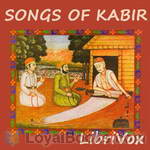 Songs of Kabir
Songs of Kabir
Kabir (1440 - 1518) was a mystic poet and saint of India, whose writings have greatly influenced the Bhakti movement.The name Kabir comes from Arabic Al-Kabir which means 'The Great' - the 37th Name of God in the Qur'an.Kabir was influenced by the prevailing religious mood of his times, such as old Brahmanic Hinduism, Hindu and Buddhist Tantrism, the teachings of Nath yogis and the personal devotionalism of South India mixed with the imageless God of Islam. The influence of these various doctrines is clearly evident in Kabir's verses... | |
By: James Champlin Fernald (1838-1918) | |
|---|---|
 English Synonyms and Antonyms
English Synonyms and Antonyms
English Synonyms and Antonyms is basically a vocabulary builder that students might use as they prepare for entrance or exit exams. Each entry gives a list of synonyms, followed by a paragraph that briefly explains or exemplifies the subtle distinctions between the listed words. The entries sometimes close with a few words on the prepositions that follow selected synonyms, but more often with a list of antonyms.By "synonyms" we usually understand words that coincide or nearly coincide in some part of their meaning, and may hence within certain limits be used interchangeably, while outside of those limits they may differ very greatly in meaning and use... | |
By: Samuel Johnson | |
|---|---|
 Plan and Preface to a Dictionary of English
Plan and Preface to a Dictionary of English
The published dictionary was a huge book: with pages nearly 1½ feet tall and 20 inches wide, it contained 42,773 words; it also sold for the huge price of £4/10s. ($400?). It would be years before “Johnson’s Dictionary”, as it came to be known, would ever turn a profit; authors’ royalities being unknown at that time, Johnson, once his contract to deliver the book was fulfilled, received no further monies connected to the book. Johnson, once again a freelance writer, albeit now a famous one, faced a grim hand-to-mouth existence; however, in July 1762 the twenty-four year old King George III granted Johnson an annual pension of £300... | |
By: Helen Fryer | |
|---|---|
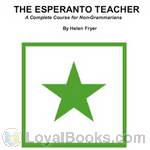 The Esperanto Teacher
The Esperanto Teacher
The international language Esperanto was first released to the world in 1887, when L. L. Zamenhof published his first book, “Dr. Esperanto’s International Language”. Since that time, many learning books have been developed to help the beginner attain a proficiency in the language. Helen Fryer’s “Esperanto Teacher” is one of the earliest of these attempts in English. Divided into 45 short and easy lessons and supplemented with sections on joining words, exclamations, compound words, arrangement... | |
By: Phaedrus (c. 15 BC - c. AD 50) | |
|---|---|
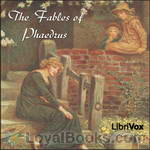 The Fables of Phaedrus
The Fables of Phaedrus
The fable is a small narrative, in prose or verse, which has as its main characteristic the aim of conveying a moral lesson (the “moral”), implicitly or, more normally, explicitly expressed. Even though the modern concept of fable is that it should have animals or inanimated objects as characters – an idea supported by the works of famous fabulists such as Aesop and La Fontaine – Phaedrus, the most important Latin fabulist, is innovative in his writing. Although many of his fables do depict animals or objects assuming speech, he also has many short stories about men, writing narratives that seem to the modern eye more like short tales than fables... | |
By: Xenophon | |
|---|---|
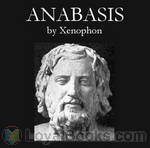 Xenophon's Anabasis
Xenophon's Anabasis
Xenophon the Athenian was born 431 B.C. He was a pupil of Socrates. He marched with the Spartans, and was exiled from Athens. Sparta gave him land and property in Scillus, where he lived for many years before having to move once more, to settle in Corinth. He died in 354 B.C. “Anabasis” is a Greek work which meane “journey from the coast to the center of a country.” This is Xenophon’s account of his march to Persia with a troop of Greek mercenaries to aid Cyrus, who enlisted Greek help to try and take the throne from his brother Artaxerxes, and the ensuing return of the Greeks, in which Xenophon played a leading role... | |
By: Lafcadio Hearn (1850-1904) | |
|---|---|
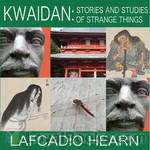 Kwaidan: Stories and Studies of Strange Things
Kwaidan: Stories and Studies of Strange Things
Most of the following Kwaidan, or Weird Tales, have been taken from old Japanese books,— such as the Yaso-Kidan, Bukkyo-Hyakkwa-Zensho, Kokon-Chomonshu, Tama-Sudare, and Hyaku-Monogatari. Some of the stories may have had a Chinese origin: the very remarkable "Dream of Akinosuke," for example, is certainly from a Chinese source. But the story-teller, in every case, has so recolored and reshaped his borrowing as to naturalize it… One queer tale, "Yuki-Onna," was told me by a farmer of Chofu, Nishitama-gori, in Musashi province, as a legend of his native village... | |
By: Anton Chekhov (1860-1904) | |
|---|---|
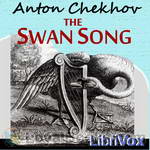 Swan Song
Swan Song
In 'The Swan Song' an aging actor reminisces about his life and the parts he's played. The piece takes a tragic look at ambition and the sacrifices that must be made in order to succeed. Chekhov’s ability to capture and explore human nature and experience is showcased here. | |
 House With The Mezzanine And Other Stories
House With The Mezzanine And Other Stories
Six short stories and a novella by the Russian master. (david wales) | |
 Ivanov
Ivanov
Nicolai (anglicised Nicholas in this translation) Ivanov, a middle-aged public servant, is unhappy. His wife Anna, disinherited by her family after converting from Judaism, is dying of tuberculosis. He is deeply in debt. And his best friend’s daughter is infatuated with him. Comedy and tragedy ensue in truly Chekhovian fashion. An example of the young Chekhov’s maturing style, Ivanov is an early harbinger of themes that would recur throughout his work. | |
 Schoolmaster and Other Stories
Schoolmaster and Other Stories
Anton Chekhov, perhaps better known as a world famous classical playwright for works such as "Uncle Vanya" and "The Cherry Orchard" was also a prolific short story writer. "The Schoolmaster and Other Stories" is one of several of his collections. It's a compilation of 30 short stories. Some bizarre, some comical but all very interesting. | |
By: Titus Lucretius Carus (94? BC - 49? BC) | |
|---|---|
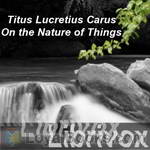 On the Nature of Things
On the Nature of Things
Written in the first century b.C., On the Nature of Things (in Latin, "De Rerum Natura") is a poem in six books that aims at explaining the Epicurean philosophy to the Roman audience. Among digressions about the importance of philosophy in men's life and praises of Epicurus, Lucretius created a solid treatise on the atomic theory, the falseness of religion and many kinds of natural phenomena. With no harm to his philosophical scope, the author composed a didactic poem of epic flavor, of which the imagery and style are highly praised. | |
By: Shaykh Hasan | |
|---|---|
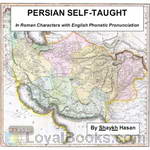 Persian Self-Taught (in Roman Characters) with English Phonetic Pronunciation
Persian Self-Taught (in Roman Characters) with English Phonetic Pronunciation
This volume is primarily intended to supply a working and practical knowledge of the Persian language, for the benefit of those who have not the time or the inclination to master the grammar, and yet require to use the spoken tongue for purposes of business or pleasure. With this object in view it supplies many vocabularies of words carefully selected to suit the needs of those holding communication with Persia and the Persians, classified according to subject, and a large number of colloquial phrases... | |
By: Euripides (480-406 BC) | |
|---|---|
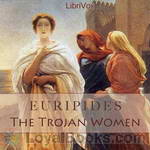 The Trojan Women
The Trojan Women
Euripides' play follows the fates of the women of Troy after their city has been sacked, their husbands killed, and as their remaining families are about to be taken away as slaves. However, it begins first with the gods Athena and Poseidon discussing ways to punish the Greek armies because they condoned Ajax the Lesser for dragging Cassandra away from Athena's temple. What follows shows how much the Trojan women have suffered as their grief is compounded when the Greeks dole out additional deaths and divide their shares of women. | |
By: Lucian of Samosata (120—180) | |
|---|---|
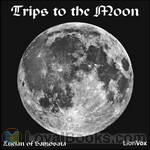 Trips to the Moon
Trips to the Moon
The endeavour of small Greek historians to add interest to their work by magnifying the exploits of their countrymen, and piling wonder upon wonder, Lucian first condemned in his Instructions for Writing History, and then caricatured in his True History, wherein is contained the account of a trip to the moon, a piece which must have been enjoyed by Rabelais, which suggested to Cyrano de Bergerac his Voyages to the Moon and to the Sun, and insensibly contributed, perhaps, directly or through Bergerac, to the conception of Gulliver’s Travels. The Icaro-Menippus Dialogue describes another trip to the moon, though its satire is more especially directed against the philosophers. | |
By: William Strunk Jr. | |
|---|---|
 The Elements of Style
The Elements of Style
The Elements of Style (1918) by William Strunk, Jr. is an American English writing style guide. It is one of the best-known and most influential prescriptive treatment of English grammar and usage, and often is required reading in U.S. high school and university composition classes. The original 1918 edition of The Elements of Style detailed eight elementary rules of usage, ten elementary principles of composition, “a few matters of form”, and a list of commonly "misused" words and expressions... | |
By: Valmiki | |
|---|---|
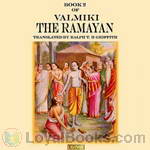 The Ramayana Book 2
The Ramayana Book 2
The Ramayana is an ancient Sanskrit epic. It is attributed to the Hindu sage Valmiki and forms an important part of the Hindu canon (smṛti). The Ramayana is one of the two great epics of India, the other being Mahabharata. It is the story of Rama, who emabrks on an epic journey followed by the fight with Ravana, the demon king who abducted Rama's wife, Sita. The epic depicts the duties of relationships, portraying ideal characters like the ideal servant, the ideal brother, the ideal wife and the ideal king. (Introduction by Om123) | |
By: Romesh C Dutt | |
|---|---|
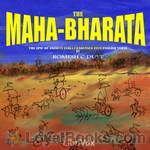 The Mahabharata by Vyasa: the epic of ancient India condensed into English verse
The Mahabharata by Vyasa: the epic of ancient India condensed into English verse
The Mahabharata is one of the two major Sanskrit epics of ancient India. Traditionally, the authorship of the Mahabharata is attributed to Vyasa. With more than 74,000 verses, Mahabharata is said to be the longest poem. Mahabharata tells the story of the epic Kurukshetra War and the fates of the cousin brothers Kauravas and the Pandavas. But more than that the Mahabharata contains much philosophical and devotional material, such as a discussion of the four "goals of life" or 'purusharthas'. The latter are enumerated as dharma (right action), artha (purpose), kama (pleasure), and moksha (liberation). (Introduction by om123) | |